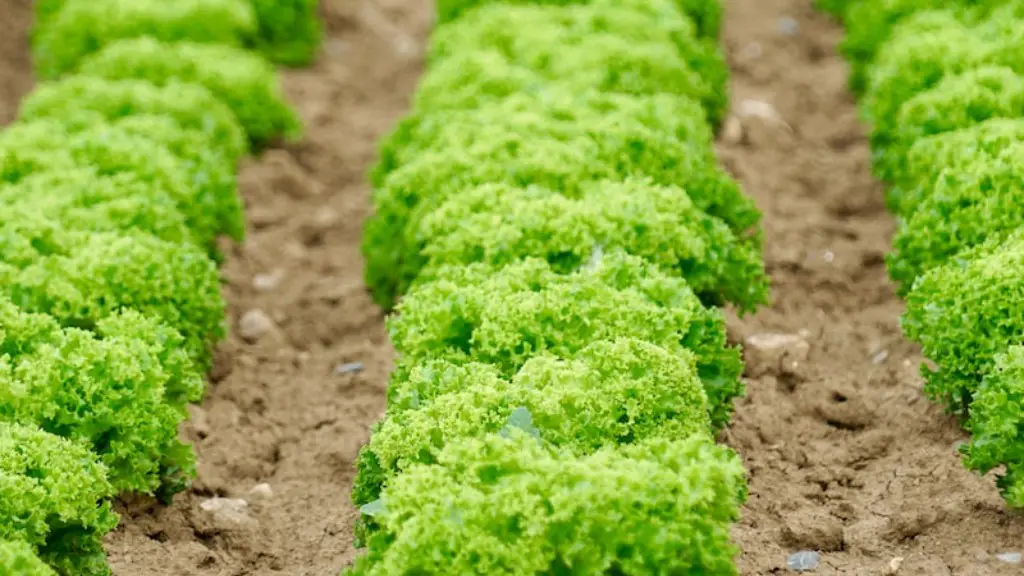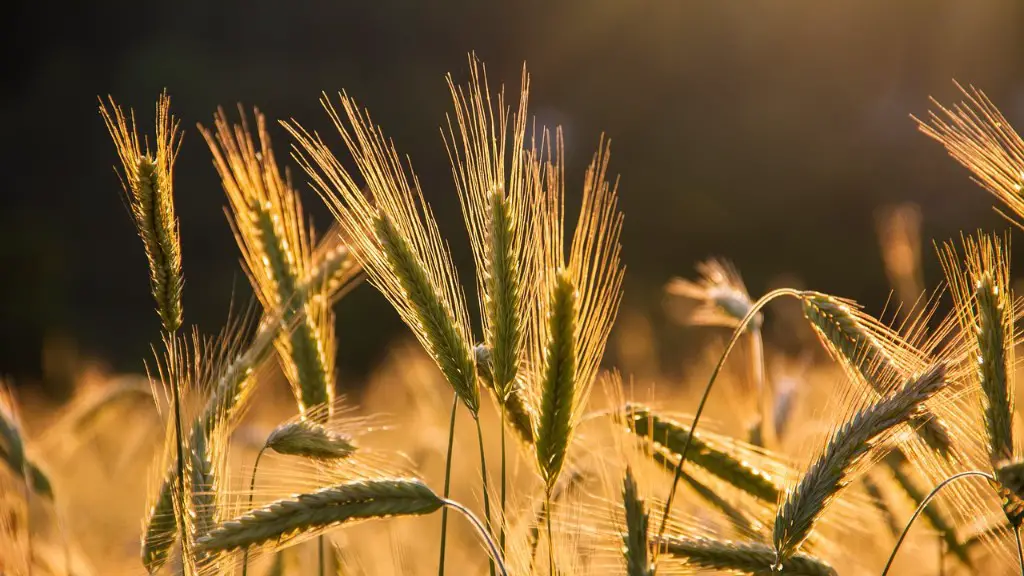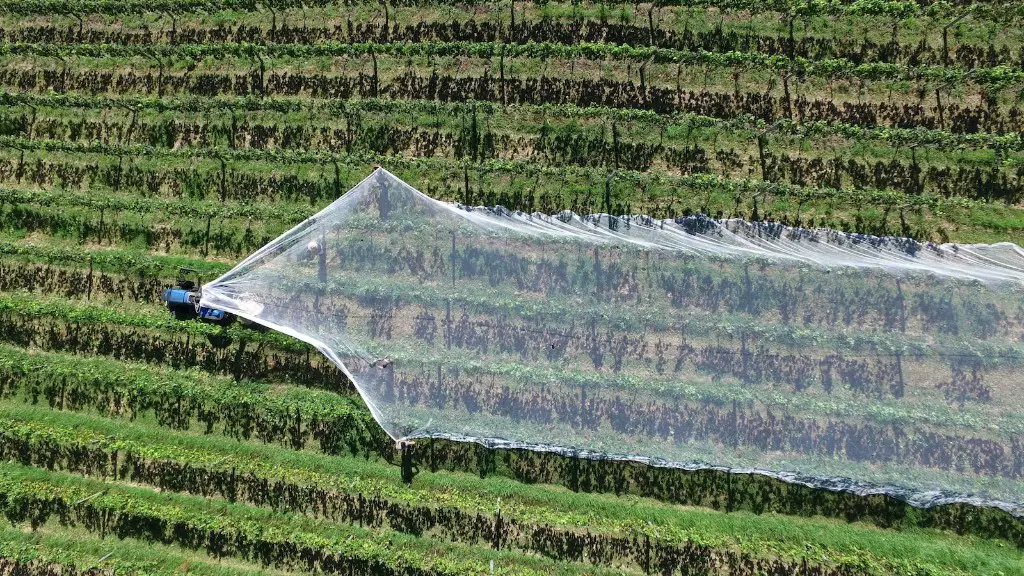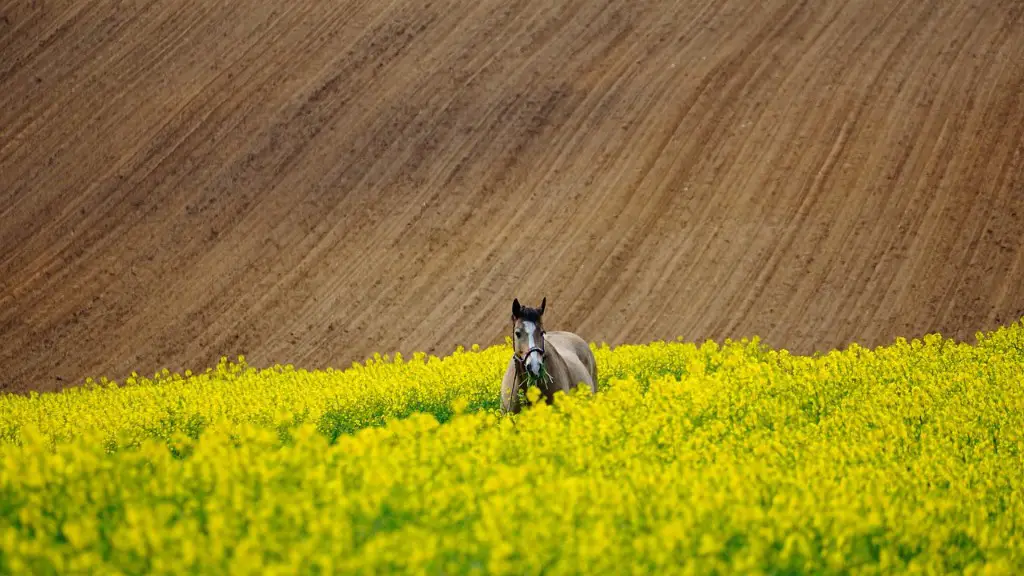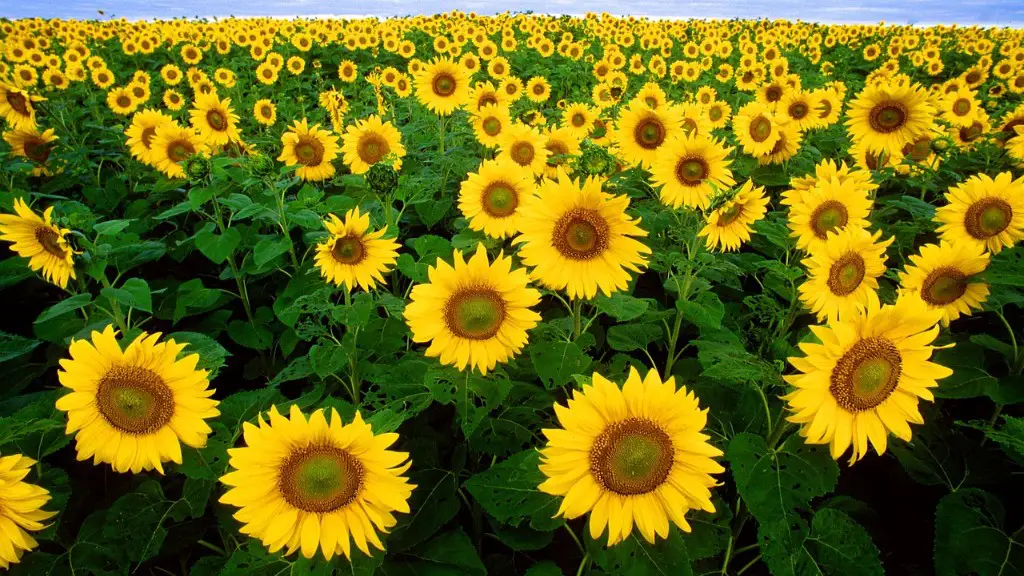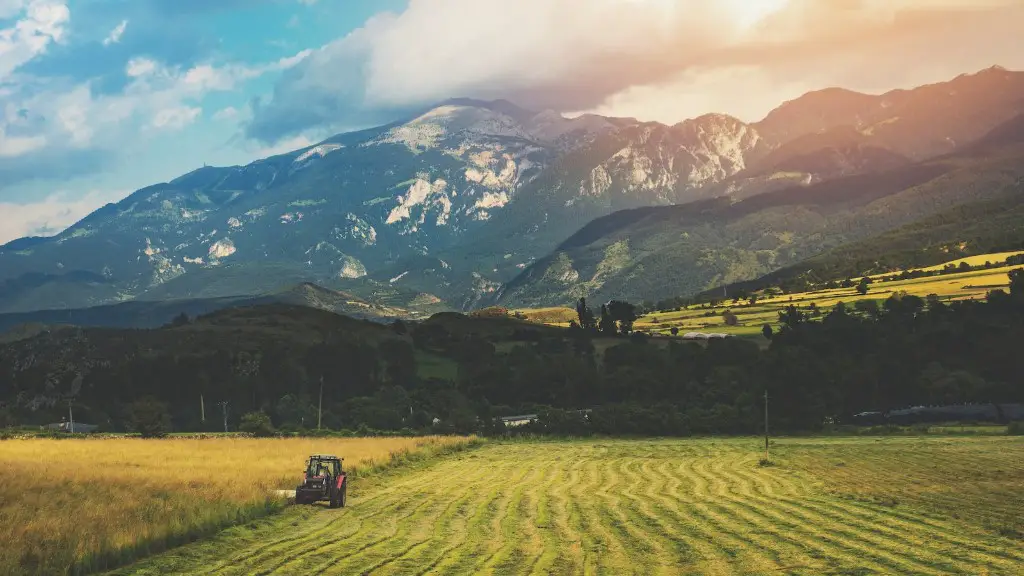Agriculture is one of the most common ways that people pollute the environment. Agriculture can pollute the air, water, and soil. Air pollution from agriculture can come from the use of pesticides and fertilizers. Water pollution can come from irrigation, animal waste, and the use of pesticides and fertilizers. Soil pollution can come from the use of pesticides, herbicides, and other chemicals.
The EPA lists agricultural pollution as one of the top causes of water pollution in the United States. Sediment, pesticides, nitrogen, and phosphorus from farms can all wash into waterways, where they can cause serious harm to aquatic plants and animals and even contaminate drinking water supplies. Agricultural air pollution, from sources like livestock operations and manure fertilizer, can also cause serious health problems.
What are 3 negative effects of agriculture on the environment?
The large-scale, conventional farming system has been criticized for its many negative impacts on the environment. This system of farming focuses on intensive single crop production, mechanization, and depends on fossil fuels, pesticides, antibiotics, and synthetic fertilizers. While this system yields high production levels, it also contributes to climate change, pollutes air and water, and depletes soil fertility. Many sustainable and organic farmers are working to create alternative farming systems that are more environmentally friendly and regenerative.
Agricultural air pollution is a major problem in many parts of the world. Ammonia is a major contributor to this pollution, and it comes from heavily fertilized fields and livestock waste. This pollution can have a major impact on the quality of the air we breathe, and it can also contribute to climate change.
Does agriculture ruin the environment
Agricultural livestock are responsible for a large proportion of global greenhouse gas emissions, most notably methane. In addition, overgrazing is a major problem regarding environmental sustainability. In some places, stretches of forage land are consumed so extensively that grasses are unable to regenerate. These problems have serious implications for the environment and the food supply, and need to be addressed.
Agriculture has had a profound impact on the environment. Five of the most significant environmental effects of agriculture are soil fertility loss, eutrophication of water bodies, deforestation, climate change and pesticide pollution.
Soil fertility loss is one of the most serious environmental effects of agriculture. It occurs when the nutrients in the soil are depleted faster than they can be replenished. This can lead to a decline in crop yields and an increase in the use of chemical fertilizers.
Eutrophication of water bodies is another significant environmental effect of agriculture. It occurs when excess nutrients from fertilizers and manure runoff into waterways, causing an overgrowth of aquatic plants and algae. This can lead to oxygen depletion and fish kills.
Deforestation is another major environmental effect of agriculture. It occurs when trees are cleared for cropland or pasture. Deforestation can lead to soil erosion, loss of biodiversity and climate change.
Climate change is another significant environmental effect of agriculture. Agriculture contributes to greenhouse gas emissions, which cause climate change. Agriculture also alters the land surface, which can impact the local climate.
Pesticide pollution is another environmental effect of agriculture. Pesticides can contaminate water bodies and soil, and can be harmful
What are 3 sources of agricultural pollution?
Agricultural pollution of rivers is a major environmental issue. There are three major sources of agricultural pollution: agricultural residues, fertilizers and pesticides, and animal husbandry. Agricultural residues include crop residues, animal manure, and biogas slurry. Fertilizers and pesticides can runoff from fields and contaminate water sources. Animal husbandry can also pollute water sources with animal waste. Excess salts from applied irrigation water can also pollute rivers.
The three major agricultural air pollutants are carbon dioxide, methane, and nitrous oxide. All three of these gases contribute to the greenhouse effect. Agrochemical runoff can over-enrich bodies of water downstream and cause eutrophication.
Is agriculture the biggest polluter?
It is possible that agriculture is the world’s biggest polluter because of the vast amount of land that is used for farming. Additionally, the use of pesticides and other chemicals can contribute to pollution.
Agricultural pollution is a major environmental problem. It has many different sources, including nitrogen-based fertilizers, chemical pesticides, and livestock waste. These pollutants can contaminate our air and water, or reside directly on our food. They can also produce potent greenhouse gases, which contribute to climate change. Agricultural pollution is a complex problem, and there is no easy solution. However, we must take action to protect our environment and our health.
What are two causes of agricultural pollution
Excess nutrients from fertilizers and animal manure can impact water quality when it rains or when water and soil containing nitrogen and phosphorus wash into nearby waters or leach into ground waters. This can lead to problems such as algae blooms and eutrophication, which can reduce water quality and harm aquatic ecosystems. To help reduce nutrient pollution from agriculture, farmers can use best management practices such as engaging in conservation tillage, planting cover crops, and properly managing livestock.
Relocating to Canada today is a great idea for several reasons. First, Canada is a developed country with a modern economy. This means that there are plenty of opportunities for skilled workers. Second, Canada is a very literate country, with a high level of education. This means that you will be able to find good jobs and have access to excellent schools. Third, Canada has a strong infrastructure, with well-developed roads, transportation, and social amenities. This means that you will be able to live a comfortable life. Finally, Canada is a safe country, with a low crime rate. This means that you can feel secure in your new home.
What are some bad things about agriculture?
Many critical environmental issues are indeed tied to agriculture. The cultivation of crops and livestock requires large tracts of land, which can lead to deforestation. Deforestation can have a number of negative consequences, including climate change, soil degradation, and loss of biodiversity. Additionally, agricultural activities can also lead to water pollution and soil contamination.
Farming allowed for the domestication of plants and animals, which led to the development of cities and civilizations. However, this also led to deep class divisions, as those who controlled the food sources had power over those who did not. This led to hunger and starvation for many, as well as epidemic diseases.
What are the 5 biggest environmental problems caused by food and agriculture
There are a number of environmental problems that can arise from food production, including water use and water pollution, greenhouse gas emissions, environmental contaminants and pollutants, depletion of natural resources, and waste.
Water use and water pollution are perhaps the most significant problems associated with food production. According to the World Water Council, it takes approximately 1,800 gallons of water to produce just one gallon of milk. This amount of water use can lead to water shortages in areas where food production is concentrated. Furthermore, the use of pesticides and other chemicals in food production can pollute surface and groundwater resources.
Greenhouse gas emissions are also a major concern when it comes to food production. The United Nations Food and Agriculture Organization estimates that the agriculture sector is responsible for approximately 14 percent of global greenhouse gas emissions. Agriculture-related emissions come from a number of sources, including livestock, soil management, and fertilizer use.
Environmental contaminants and pollutants can also be a problem in food production. Pesticides, for example, can contaminate the food supply and potentially cause health problems in both humans and animals. Food production can also lead to the depletion of natural resources, such as water, soil, and forests.
Waste is also a major issue in food production.
There are many sources of water pollution, but some of the most common are fertilizers, wastewater, automobile exhaust, and natural animal waste. These pollutants can contaminate our water supplies and make them unsafe to use. Treatment of these contaminated water supplies can be expensive and time-consuming, so it’s important to prevent water pollution whenever possible.
What are the 4 types of agricultural waste?
Agricultural wastes are one of the major sources of pollution in the environment. They can cause serious health problems and can even lead to death in some cases. It is therefore important to properly dispose of them. The best way to do this is to compost them. This will help to break down the organic matter and make it safe for the environment.
Soil erosion is a major problem for farmers as it can lead to water pollution. When rainwater washes away soil from fields, it carries the sediment and dumping it into nearby lakes or streams. This can cause the water to become cloudy, reducing the amount of sunlight that reaches aquatic plants. Sediment can also block the gills of fish, making it difficult for them to breathe.
Conclusion
Agriculture can pollute the environment in a number of ways. Pesticides and other chemicals used in farming can contaminate water supplies, and agricultural runoff can cause algal blooms that deplete oxygen in the water and create dead zones. The clearing of land for farming can also lead to deforestation, which can cause soil erosion and contribute to climate change.
Agriculture pollutes the environment in a number of ways. Pesticides and fertilizers can run off into waterways, polluting the water. Agricultural runoff is a leading cause of water pollution in the United States. In addition, livestock produce methane, a greenhouse gas that contributes to climate change. And finally, clearing land for agriculture destroys habitats and contributes to deforestation.
